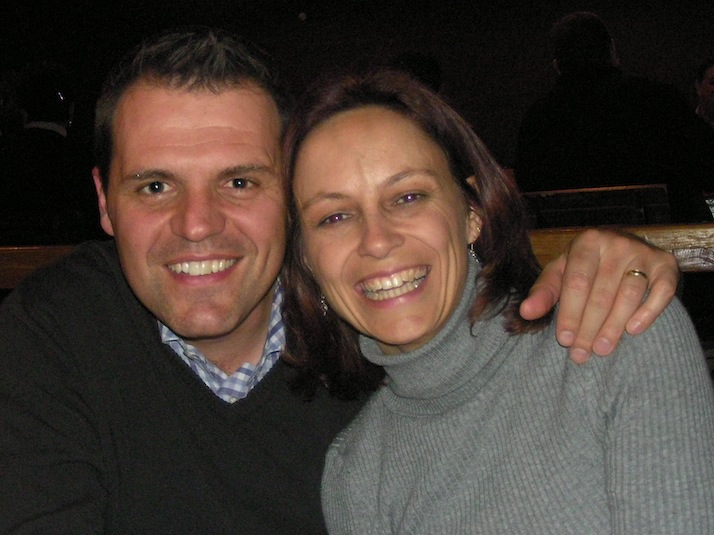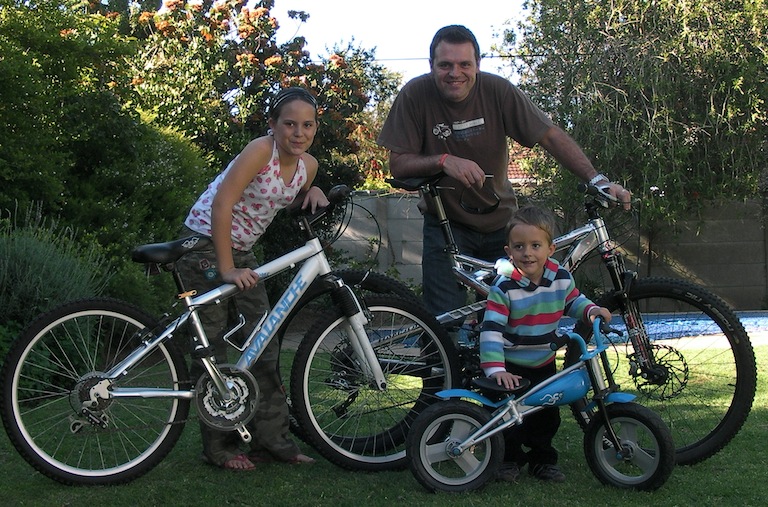 We cannot thank and praise God sufficiently for His unending mercy and grace to Courtney and our whole family!
We cannot thank and praise God sufficiently for His unending mercy and grace to Courtney and our whole family!
We love our girl so very, very much! Her life is an immeasurable gift to us, and we know that God has such a special plan for our princess. He has carried her through this last tough month, offering her courage and wisdom well beyond her tender age. We are so proud of Courtney - she has faced her fears, endured pain and uncertainty with courage, and through it all been a shining example of a young Christian woman whose faith is in our God!
Today, on the 1st of October, Courtney's journey with cancer has come to an end!!
This morning we took her back to Dr Wessels at the Somerset West Mediclinic for a final checkup and to have the 24 staples removed from her neck and head. While she will bear the physical scar from this month on her body for some years, we are praying that God will completely remove any emotional scars there may be! We know that she will soon return to her vibrant love of life! The signs are already there!
Courtney is such a brave little girl. Her courage has blessed and inspired me.
Sure, she cried a little today as they removed the staples, but in the end she managed a great smile! We're hoping that she will return to school next week (for part of the day to start with, and then ease her way back in).
She received some medication to deal with the last of the blood and tissue that is in her brain and spinal fluid (this is a bit like a mild meningitis). But this will clear and soon there will be no more headaches, vomiting or nausea.
All glory to God who not only creates in magnificence, but also re-creates, sustains and perfects His creation!
You can read about Courtney's journey through this illness to the miracle of healing by clicking here (or on the tag 'miraclegirl').
You may recall that our journey began about a month ago when Courtney fell ill with a cold. This quickly spread into a sinus infection and later she was hospitalised with a swollen face and eye. Because there was some concern about the damage to her optical nerve (and to see where the infection was) she went for an MRI. At that point it was discovered that she had a 3cm tumor in the 4th cerebral ventricle. She was treated for the infection to her eye and her surgery was scheduled for two weeks later. The operation was a great success and the neurosurgeon was overjoyed that he had completely removed the tumour. There was no damage to her brain at all.
Whilst the worst was feared about the histology of the tumor, the best results returned a few days later! Courtney's tumor was benign - she had a very rare form of brain cancer called a Choroid Plexus Papilloma (accounting for between 0.4-0.6% of tumors in that area of the brain). Even the doctor assured us that this was an answer to prayer since the Medulloblastoma (which is a much more agressive cancer) is the more likely growth in that region. God in His grace had healed her!
 All in all we have experienced anew the wonder of God's loving grace and power, it has been emphasized through the wonderful care and love of the body of Christ. As family, friends and colleagues - and even people we don't know - have prayed for Courtney, sent notes, cooked meals, sent messages and loved us on behalf of Christ!
All in all we have experienced anew the wonder of God's loving grace and power, it has been emphasized through the wonderful care and love of the body of Christ. As family, friends and colleagues - and even people we don't know - have prayed for Courtney, sent notes, cooked meals, sent messages and loved us on behalf of Christ!
I want to encourage you about the certainty of God's love in every situation (as Romans 8.28 says). Moreover, God's mercy and compassion is a source of great power and strength in such trying times (please read Lamentations 3.21-26 and Psalm 33.18-22).
If you come upon this post in the years after October 2010; and you find yourself struggling with the diagnosis of a loved one, perhaps a child or a spouse, then please be encouraged by what God has done in Courtney's life. Feel free to drop us a line. It would be our joy to pray with you and offer you encouragement and care.
This unfortunate event has renewed our faith in God's power. It has also caused us to have to reconsider our priorities in life! Our children truly are our most precious gifts from the Lord - nothing is more valuable. Work, ambition, material advancement, personal fulfilment, all of these things must rightly take their place behind the priority of creating a loving home to safely nurture our children towards their great destiny.
As you know both Liam and Courtney have had their fair share of health challenges in life - we thank God for all He has done in them and for what God wants to do with Courtney and with Liam.
Courtney's whole life lies ahead of her - please pray for our princess and ask God to bless and protect her in the many years that lie ahead! Please pray the same thing for little Liam! May he too come to grow into all that God has destined him to be!

With inexpressible gratitude for God's loving grace,
Dion, Megan, Courtney and Liam.
 Sunday, April 24, 2016 at 9:58PM
Sunday, April 24, 2016 at 9:58PM 


